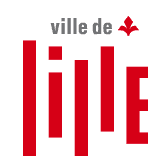 David Coudert (http://www-sop.inria.fr/members/David.Coudert/), is a research scientist at Inria Sophia Antipolis since 2002, and the scientific leader of COATI (https://team.inria.fr/coati/), a join project-team between Inria and the I3S (CNRS, UNS) laboratory. His research interests include algorithmic graph theory, combinatorial optimization and operations research with communication networks as main application area (routing, fault tolerance, reliable design, etc.). He is also working on optimization problems from structural biology and transportation networks. In addition, he contributes the development of graph optimization libraries such as Grph and SageMath. He participated to several national (ANR) and European (FP5 CRESCCO, FP6 AEOLUS, FP7 EULER) collaborative projects; he was scientific leader of WG-A (Broadband and optical networks) of COST 293 GRAAL; he has ongoing collaborations with industrial partners such as Nokia Bell labs, Orange labs, Amadeus, Instant-System and 3Roam. He is in the steering committee of GDR RSD ResCom and in the editorial board of Networks (Wiley) and Discrete Applied Mathematics (Elsevier). He was the general chair of AdHoc-Now 2008 (Sophia Antipolis).
David Coudert (http://www-sop.inria.fr/members/David.Coudert/), is a research scientist at Inria Sophia Antipolis since 2002, and the scientific leader of COATI (https://team.inria.fr/coati/), a join project-team between Inria and the I3S (CNRS, UNS) laboratory. His research interests include algorithmic graph theory, combinatorial optimization and operations research with communication networks as main application area (routing, fault tolerance, reliable design, etc.). He is also working on optimization problems from structural biology and transportation networks. In addition, he contributes the development of graph optimization libraries such as Grph and SageMath. He participated to several national (ANR) and European (FP5 CRESCCO, FP6 AEOLUS, FP7 EULER) collaborative projects; he was scientific leader of WG-A (Broadband and optical networks) of COST 293 GRAAL; he has ongoing collaborations with industrial partners such as Nokia Bell labs, Orange labs, Amadeus, Instant-System and 3Roam. He is in the steering committee of GDR RSD ResCom and in the editorial board of Networks (Wiley) and Discrete Applied Mathematics (Elsevier). He was the general chair of AdHoc-Now 2008 (Sophia Antipolis).Title: On the design of reliable wireless backhaul networks
Abstract: Fixed point-to-point wireless communications is a particular sector of the communication industry that holds great promise for delivering private high-speed data connections by means of microwave radio transmission. In particular, microwave communications provide a cost-efficient technology for deploying fixed wireless backhaul networks, or to provide broadband communications in remote locations where classical copper or fiber lines are too costly or simply unavailable.
The capacity of microwave links is mainly determined by the channel bandwidth and the modulation scheme used to transmit data. However, the reliability of these networks depends on external factors, particularly the weather, which affects the maximum capacity of each link. In case of bad weather, adaptive modulation and coding helps preserving the functionality of a network link by reducing its capacity. However, this characteristic make it very difficult to compute the exact reliability of a network, and hence to design the network.
In this presentation, we will survey recent proposals for designing reliable wireless backhaul networks using microwave links. We will in particular consider the problem of determining the
minimum cost bandwidth assignment of the links in the network while guaranteeing a
reliability level of the solution, i.e., the selection of bandwidth is made in order to reduce bandwidth costs while guaranteeing that traffic requirements can be met with high probability.
This work is the result of a long term collaboration with SME 3Roam (http://www.3roam.com), specialized in the design and deployment of high-speed wireless networks.






